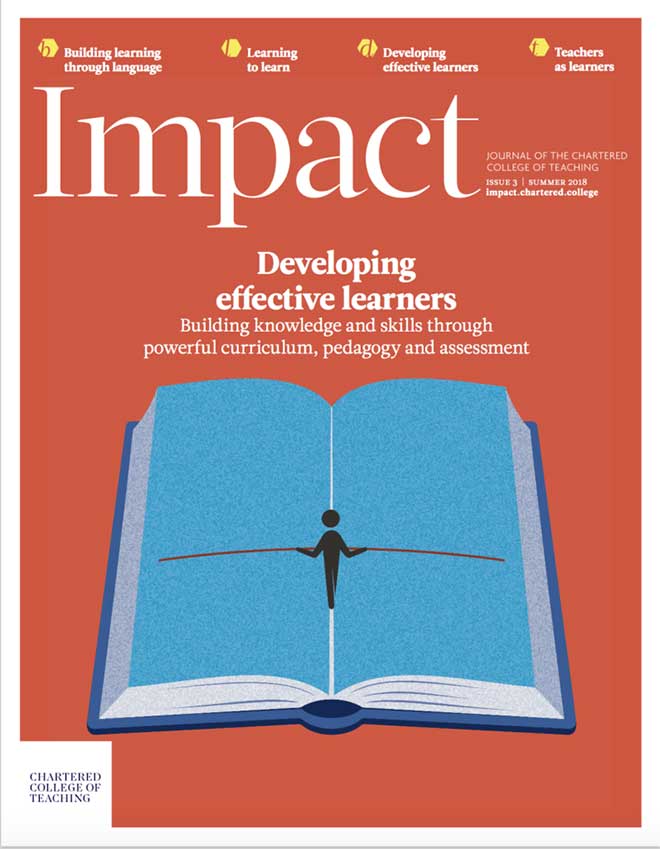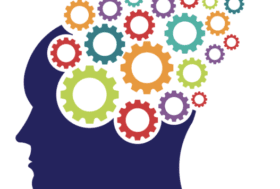FROM THE EDITOR
It feels like a lifetime since I used to teach secondary science, although when I did, by far my favourite topic to teach was genetics. I loved the challenge of building concrete understanding out of abstract concepts and the sense of wonder that would emerge as students began, for the first time, to get a sense of the very fabric that makes up who we are (if you’ve never extracted DNA from an onion, you are missing out!).
Perhaps most of all, I enjoyed the opportunities to explore some fascinating moral and ethical discussions in a field that was, and still is, moving at lightning speed. Out of all of these debates, the one that would often draw the most interest and passion was a discussion around the relevant influence of our genetics and environment.
As many of you will know, through much of the 20th century, biologists and social scientists went head-to-head as to whether human behaviour was governed primarily by inherited characteristics (nature) or environmental factors (nurture). Biologists emphasised the role of genes, while sociologists stressed the importance of experience and social settings. Each group put forward conclusive evidence for its view and decided that the other was mistaken. It turns out that both groups were wrong. Rather than nature and nurture operating in isolated contrast, over the last 40 years, scientists have realised that our environment has such a profound impact on who we are precisely because it works through our genetics. As Matt Ridley sets out in his fantastic book, Nature via Nurture (Ridley, 2004):
Nurture depends on genes, and genes need nurture. Genes not only predetermine the broad structure of the brain; through the pattern of their turning on and off, they also absorb formative experiences, react to social cues and even run memory. They are consequences as well as causes of the will.
On the back of these developments, we have entered a period of sophisticated and, frankly, more interesting investigation of the elaborate dance that plays out continuously in our cells between our genetics and environment.
That’s all very well, you say, but what has this got to do with teaching and learning? Well, as for the ‘nature vs nurture’ argument, it seems that we too in education are drawn to false dichotomies and polarised debates: knowledge vs skills, explicit instruction vs independent learning, academic vs ‘soft’ skills, research evidence vs professional expertise, to name just a few.
I’ve long suspected that neither these polarised views nor those people who shout the loudest about them are representative of the views and interests of most teachers. Indeed, a recent survey of teachers through Teacher Tapp showed that the majority of respondents saw themselves as being neither ‘traditional’ nor ‘progressive’ but as some blend of the two (teachertapp.co.uk/2018/02/whatteachers-tapped-5-feb-2018/#tradprog). As long as we continue to pitch one side against the other, I sense that we will struggle to develop a deep, shared understanding of how children learn.
With all this in mind, I really do believe that it is an exciting time to be discussing teaching and learning in the UK. Just as for genetics at the start of the 21st century, there is an increasingly vibrant and nuanced study of the interplay between factors that make up effective learners and how teachers can support their development. Indeed, one of the defining features of the first three issues of Impact has been an exploration of some of these issues: How can we use discipline-based knowledge as a foundation to develop expert learners? What is the relationship between student engagement and learning? What blend of teaching strategies and learning skills can help build and consolidate understanding? What do we emphasise at different points in time and context? Clearly, we know something about these questions, although there is certainly scope for more.
This issue of Impact builds on the work of the previous issues. In the opening section, Isabel Beck and Margaret McKeown discuss the reasoning underlying their research into effective vocabulary instruction, explaining their insights, built up over the past 25 years, into how students can develop the kind of rich vocabulary that will serve them in school and beyond. Two teachers, Jude Hunton and Clare Sealy, reflect on how this research has informed their practice, describing their respective interventions to boost vocabulary instruction.
Spoken language skills are, of course, fundamental to being an effective learner, and in the second section teachers and researchers discuss how we can improve the quality of discussions in the classroom. Will Millard provides a helpful overview of the role that oracy plays in teaching and learning, and Amy Gaunt explains how teachers at School 21, in East London, are using oracy to deepen subject knowledge. Daryn Egan-Simon and Antony Luby describe the principles of dialogic teaching – building on Robin Alexander and Neil Mercer’s longstanding research – and how these principles can be applied in the classroom. They argue that promoting particular types of classroom talk challenges and stretches students’ thinking, develops core skills of listening and reasoning, and acts as a foundation for learning.
The relationship between subject knowledge, learning skills and metacognition is explored in section three, with a particular focus on how teachers can explicitly help pupils develop these competencies. Several teachers discuss how they have used metacognition and self-regulation to help students grasp particular concepts within their subjects. Stephen Lockyer describes teaching metacognition to help children learn the skill of inference, as an essential tool in children’s ability to read and interpret texts (and answer questions in Key Stage 2 SATS), while Jacob Wilson explores how metacognition can develop students’ problem-solving abilities in mathematics. Alex Quigley and Eleanor Stringer address several misconceptions around metacognition, including the misunderstanding that it is simply ‘thinking about thinking’ – a generic skill not bound to subject knowledge. They emphasise that teaching metacognitive skills can help students to monitor their knowledge of a particular discipline, and use this understanding to make judgements about how to direct their efforts. Much as genes and environment are dependent on one another, metacognition and cognition are intimately entwined.
Enabling students to develop the skills and knowledge to learn effectively – both within and beyond the school gates – is a consistent theme of articles in this issue. Guy Claxton contends that lifelong learning requires knowledge, skill and technique, and a set of positive attitudes towards learning itself; knowledge, skills and epistemic character are not separate domains, but are layers of learning, all of which are simultaneously active in every classroom. Christopher Tay, a primary school teacher from Shropshire, describes techniques to engage students’ prior knowledge to aid learning and, amongst a range of other articles, Mark Enser discusses the importance of subject knowledge and how teachers can maintain and improve their disciplinary knowledge.
A standout feature of this issue of Impact for me is the quality of the studies and articles produced by practitioners. Evidence-based practice is, and always has been, about the integration of the best available evidence with professional expertise, and it’s great to see a journal such as Impact providing a formalised platform where these ideas and insights can meet.
Those of us researchers who have been genetically thwarted with less hair than we’d like (step forward Professors Coe, Higgins, Wiliam, Gorard, Howard- Jones, etc!) can remember a time when evidenceinformed policy and practice was led predominantly by researchers. Now, it feels as though the UK is pioneering an exciting evidence-informed conversation about learning that is increasingly being driven by the profession. It’s early days, but if the quality of conversations on teaching and learning continues as it is at present, I can see a period of innovation and improvement that will rival that of 21st-century genetics.







































